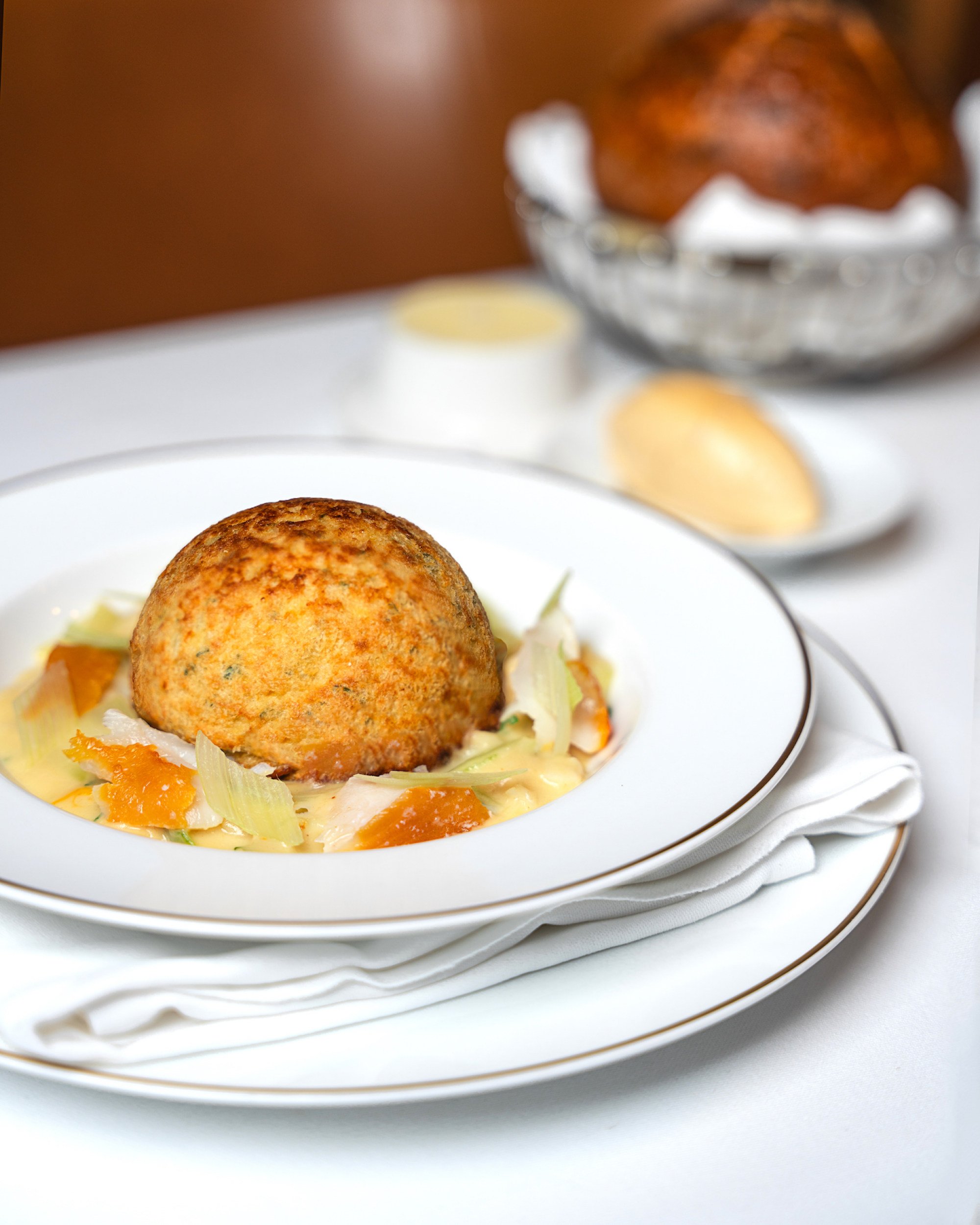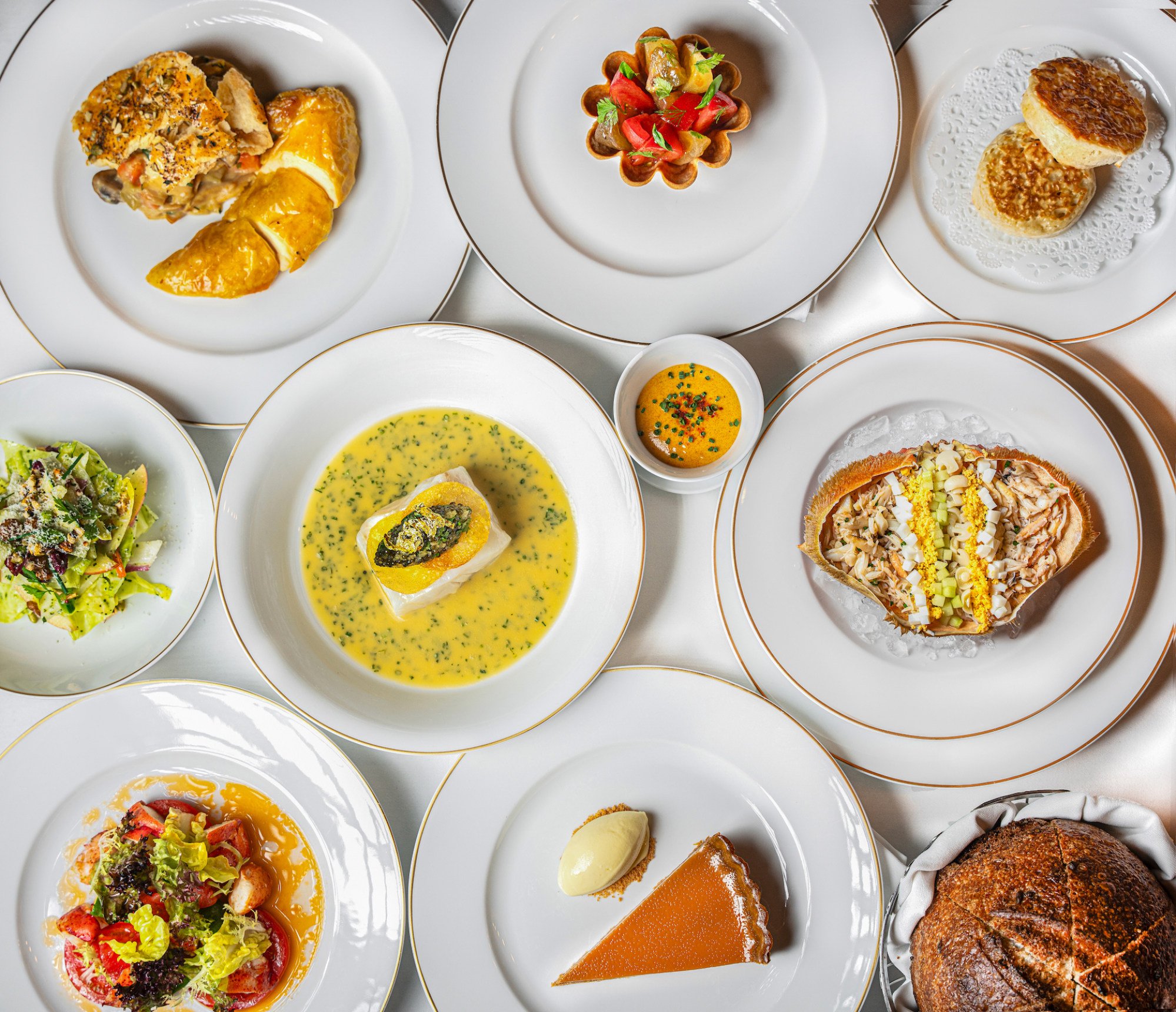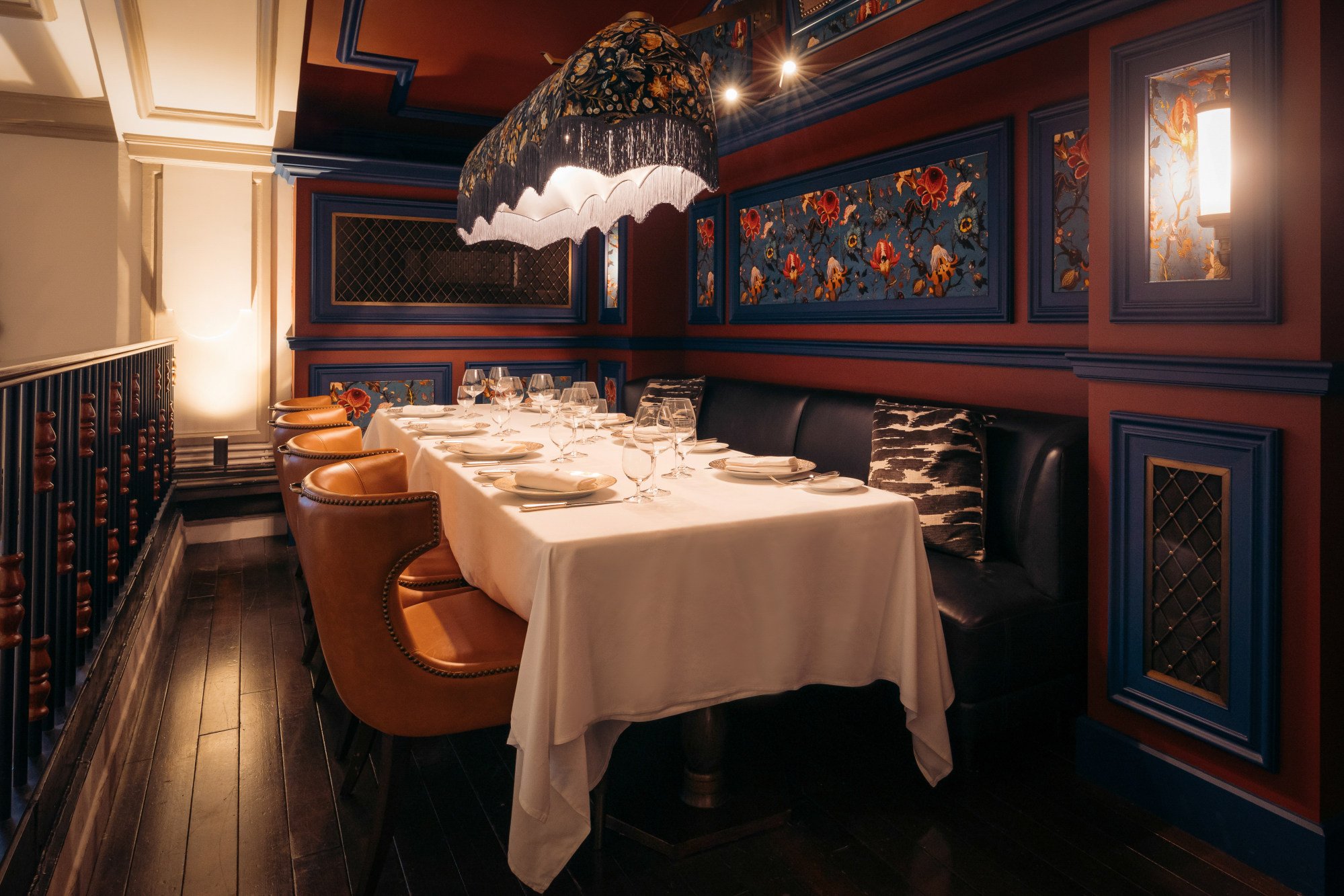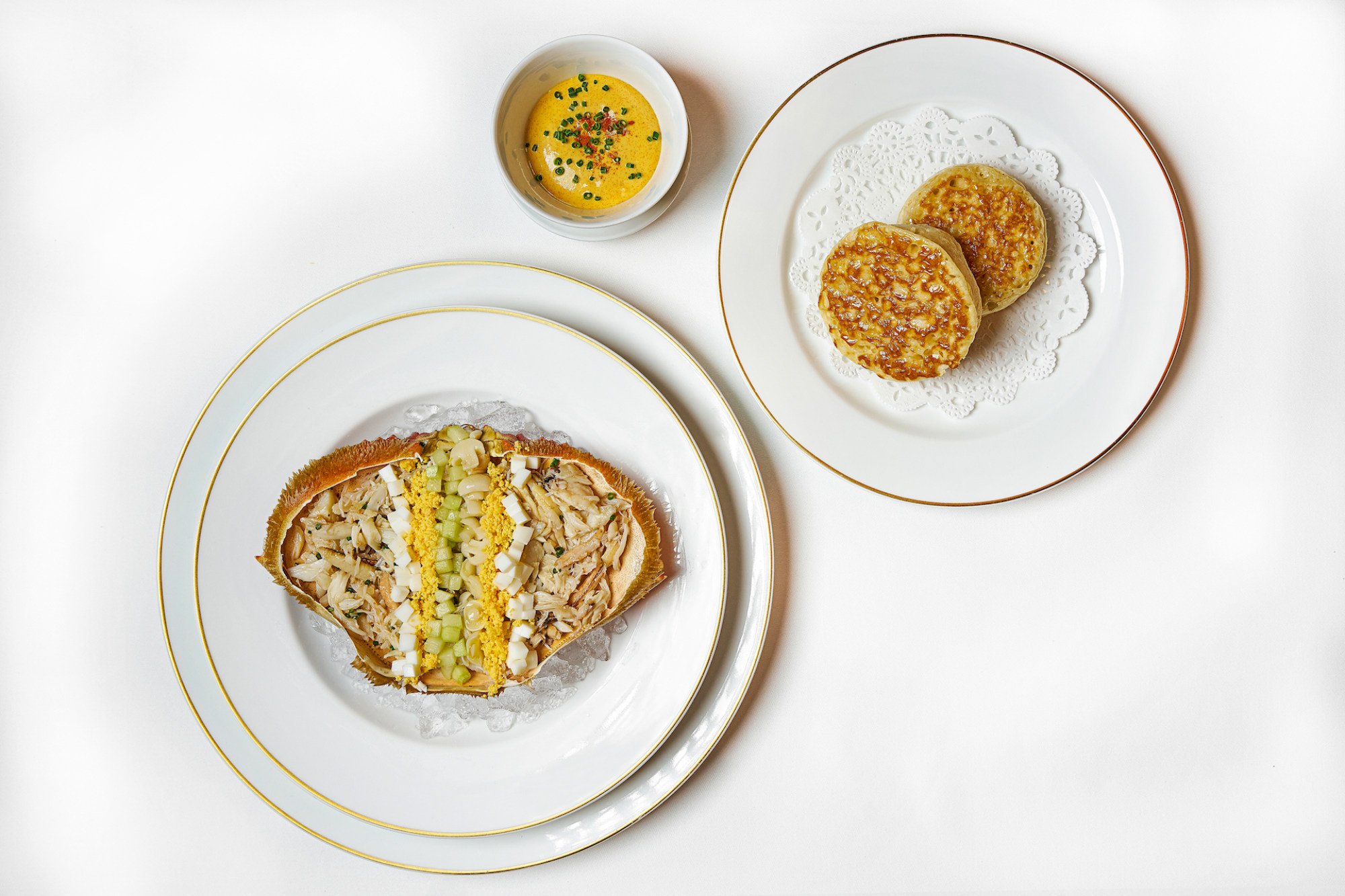
It is a dish which has featured throughout his 40-plus-year career, during which he has worked alongside some of the biggest names in British cuisine, from Gordon Ramsay to Angela Hartnett and Marcus Wareing.
Williams grew up in a home where the approach to food would be unusual today, let alone in the 1970s.
“Coming from a working-class background, everyone I knew ate simply, but my dad John was inquisitive, always liked food and enrolled on an evening French cookery class in the 1960s,” he says.
It was incredible, a bygone era now, a massive Victorian kitchen with all these sections like in the film Ratatouille
“We grew up eating dishes like chicken and parsley risotto, minestrone, all freshly made with home-grown vegetables. A real treat for us was a Birds Eye hamburger – as processed as it got!”
He adds that, when friends would come to his house, his dad would serve daube, a slow-cooked French beef casserole, with a fines herbes pancake, and they would turn their noses up at it.

“It was incredible, a bygone era now, a massive Victorian kitchen with all these sections like in the film Ratatouille,” Williams recalls.
“The head chef had a microphone in his office so he could shout at people; there was range after range of gas-fired stoves; lines for shellfish, potato, offal, meat, fish; and a pass that must have been 150 feet (45 metres) long.
“It was really classic French food and the prep was immaculate, so it made for a great education.”
In the late 1980s he moved on to cook at restaurants including Les Alouettes in Surrey, southeast England, and Le Champignon Sauvage in Cheltenham, southwest England, before hanging up his apron to pursue his love of travel, with time spent in India and years as a ski instructor in Canada and France.
He returned to London in 1996 to join chef Stuart Gillies at Teatro restaurant, followed by stints at restaurants including The Greenhouse and Chez Bruce, both in London.
Then Pétrus – opened by Gordon Ramsay and Marcus Wareing – came calling. Williams explains he got through the door because one of Wareing’s chefs de partie was Angela Hartnett, who grew up down the road from him and asked him to join the crew.
“Marcus was only 23 or 24 at the time, a very driven man, one hell of an ambitious and brilliant cook,” he recalls. “Pétrus was one of the hardest kitchens in London at the time. Blood, sweat and tears went into it, it was brutal but so rewarding.” Williams was part of the team that helped Pétrus gain its first Michelin star.
We used to go through 30 litres of eggs a day and 10kg of smoked haddock. One person did nothing but make them
In 2001, he returned to the hotel restaurant where he did his college placement, which had by then become Gordon Ramsay at Claridge’s.
“Gordon was a brilliant, brilliant chef and we saw him in the kitchen every day. He used to blindfold you to get you to feel the meat or fish to get an understanding of cuisson [how well cooked it is]. He’d say: ‘You should be able to cook blind’.”
“We used to go through 30 litres [8 gallons] of eggs a day and 10kg [22 pounds] of smoked haddock,” says Williams. “One person did nothing but make them, layering it gently in a copper pan. It was so popular, such a lovely dish – just delicious!”
It has also become a hit for Williams in Hong Kong at the Magistracy Dining Room, where it has morphed from a more classic omelette into an elegant soufflé, although still with a decadent mix of smoked haddock, Lincolnshire poacher cheese and the addition of leeks, a brilliant twist.
But there is far more to explore on Williams’ menu, one which clearly steers the atmospheric dining room in a distinctly British direction.

It is cooked Asian-style in a salt-sugar brine, then left to dry; steamed; and dried, then steamed again. This produces the perfect combination of bite and moistness, and most of all flavour.
“Three yellow chicken is a great bird. The colour, texture and taste is amazing, it’s super moist,” says Williams. He explains that they make the shortcrust pastry with rendered chicken fat whipped with butter, and brush it with more fat at the end.
The filling consists of leg meat, roasted and braised with plenty of herbs and vegetables.
“Overall, you can tell we have to prep it a couple of days in advance,” the chef laughs. “It’s worth it.”
Crustaceans are another hero on the menu, thanks to Williams’ dressed Dungeness crab, served with brown crab mayo and toasted crumpets – a small yeasted griddle bread with a distinctive pockmarked appearance.

“Dungeness is great crab. I tried first with Cornish brown crab, but Dungeness was better meat,” he explains. “It’s a classic dressed crab – I’ve made a mayonnaise with curry powder to give it a bit of spice.
“I’m also obsessed with crumpets! I love that most people have no idea what a crumpet is. It looks good and is the perfect base.”
The finished plate underscores exactly why Williams’ long résumé is so remarkable. He celebrates exceptional seasonal produce with no fuss, foams or unnecessary garnishes – but lets the ingredients sing in delicious harmony.
You cannot help but leave with the impression that his father, John, who set him out on a culinary path at such a young age, would be immensely proud of how he does so.

